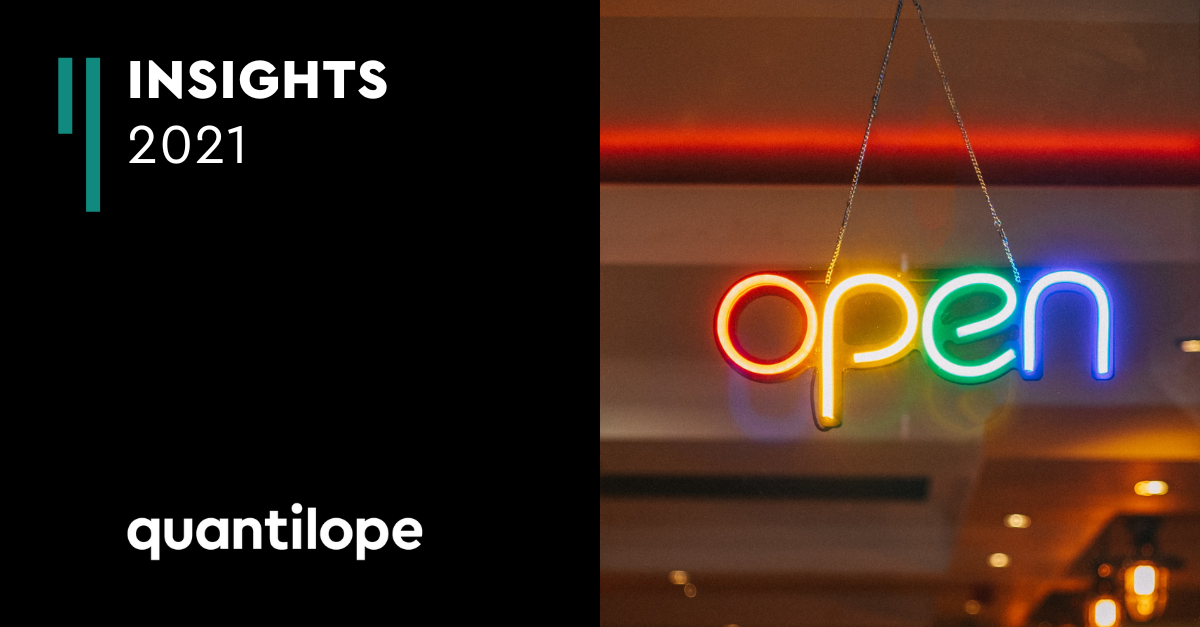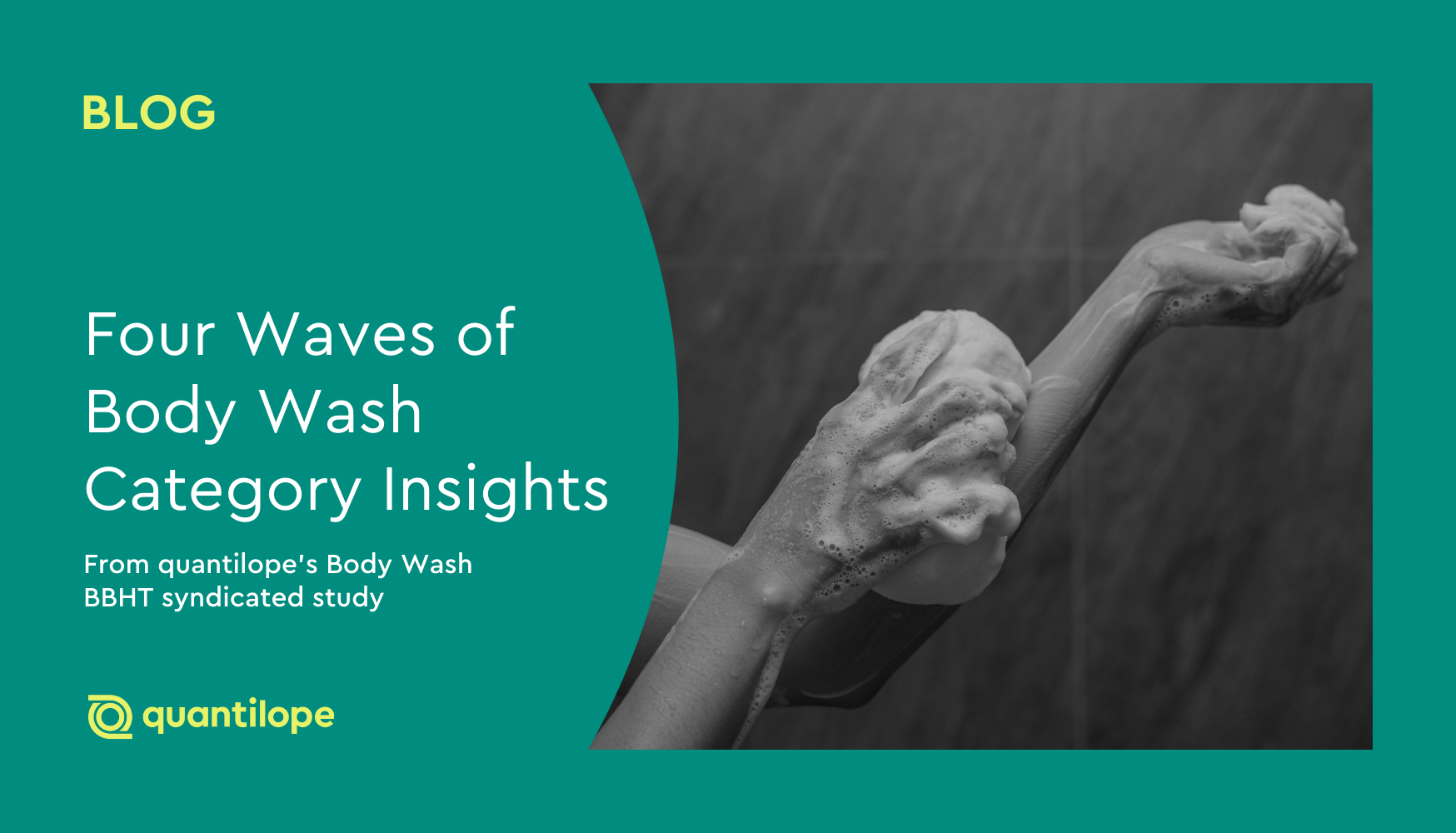As COVID-19 restrictions ease, it’s vital to keep your finger on the pulse of your audience’s behaviour and attitudes, helping inform the way you should communicate and tailor your offer. And the best way to understand those all-important emotions at this emotion-charged time is by hearing and watching people talk about how they feel.
We’ve all experienced varying degrees of constraints on our freedom and enforced changes to our lifestyles over the past year. For some this has meant being shut away for months on end, while some people’s jobs have required them to mingle with others as much as ever. Whichever situation applies to us, our reactions to lockdown have differed: at one end of the spectrum there has been fear and frustration, while for other people there has been relief and even enjoyment. So now, as society’s rules and expectations begin to change once again and we re-emerge blinking into a new reality, we can expect that there will be a range of emotions and reactions associated with it.
For businesses and organisations, the question is how to respond to a complex mix of attitudes. Behaviour in the coming months will be shaped by emotions, personal values, financial security and work requirements, so it’s worth considering what characterises your target audience in each of these areas.
Mental health organisations like Mind report that emotions surrounding easing of COVID restrictions vary hugely. There is obviously a lot of anxiety and stress around, but other feelings will also affect how people conduct their lives. Will anger – at governments, or at people who don’t follow rules, for example – ultimately mean that people’s voting patterns change, or that they avoid being around people with differing views to their own? Will a lack of motivation after weeks in lockdown mean some people feel uncertain about social gatherings or visiting restaurants, museums, theme parks, cinemas and other places that entail spending money and boosting the economy?
Personal values may well have changed over the course of the pandemic. As our world shrank and we found ourselves spending more time in our immediate locality, many people discovered new hobbies, often homely or inspired by nature (baking, crafts, DIY, more reading, gardening, birdwatching). Will people continue with these newfound interests or will they ditch them as soon as the restaurants and bars open? Similarly, will the increased support of local and independent businesses continue, or will people revert to the convenience of Amazon once their lives become busier? Research by Barclaycard Payments in the UK suggests almost two thirds of British people shopped locally over the past year and nine out of ten of those say they will continue to do so, so this could represent a major shift in retail spending behaviour. The same research showed that as well as increased home deliveries, a ‘come to me’ service that allows people to try on clothing and return it immediately to the delivery person if it doesn’t fit has become popular, as have digital payments and dine-at-home restaurant kits, all of which could impact business strategy and profits.
This is all well and good, but people can’t spend if they don’t have the disposable income. Situations will differ by household of course, and job losses or increased savings over the past year will continue to determine spending, but the good news from GfK’s recent Consumer Confidence Index is that UK consumers are feeling buoyed by the recent budget and vaccination progress. This in turn makes them feel their personal financial situation is secure or will improve, and even if they are not comfortable enough to visit stores in person, they will at least be willing to splash out on bigger purchases.
Many people’s working patterns have changed over the past year, the most noticeable shift being working at home. But while some businesses are keen to capitalise on the increased productivity that working from home has brought - as well as slash their overheads by reducing office space - other companies are keen for their staff to return to the office, or to create a hybrid arrangement that extracts the most from face-to-face contact and lone working. Clearly public transport services and retail will need to review their business plans if commuting decreases, but how will it have a bearing on other areas of people’s lives – for example physical and mental health, and how they use (and spend during) their free time?
Whichever business you’re in, from retail and consumer goods to events, health services, travel, office space or not-for-profit, it’s going to be vital to keep your finger on the pulse of your audience’s behaviour and attitudes over the coming months. The way you communicate with and tailor your offer to those who are desperate to throw themselves into their previous lives will be very different from how you interact with those who are more reticent. And the best way to understand those all-important emotions at this emotion-charged time is by hearing and watching people talk about how they feel. Quantilope's video survey tool inColor offer you this, with advanced tools such as sentiment and facial emotion analysis to add further depth to your understanding, so get in touch with us to see how we can help you get the most from your business at this important time.



